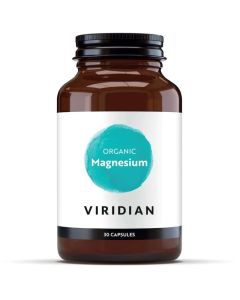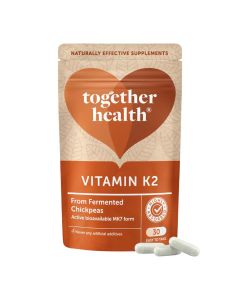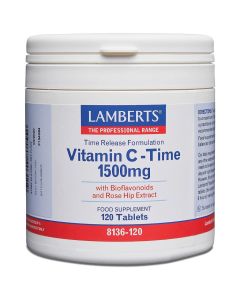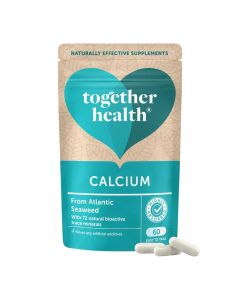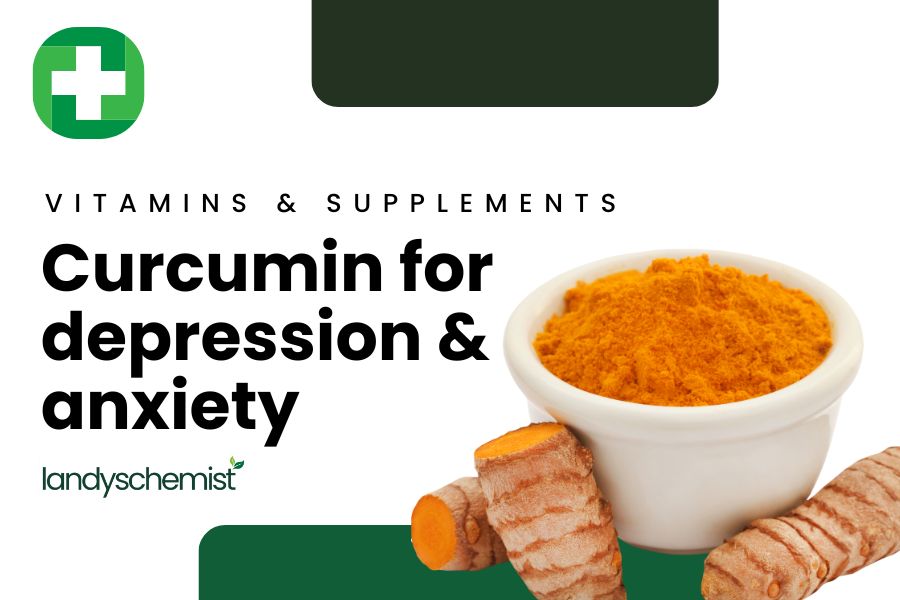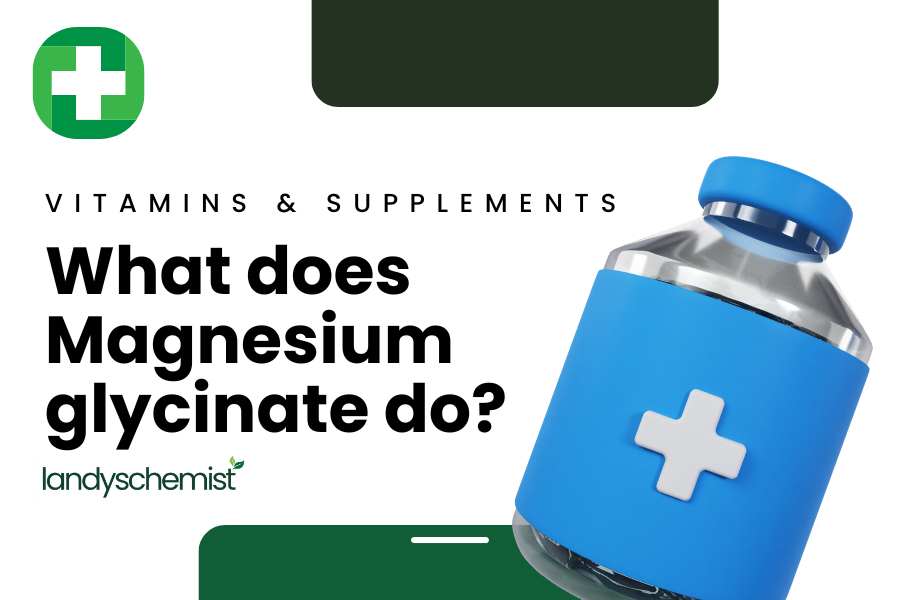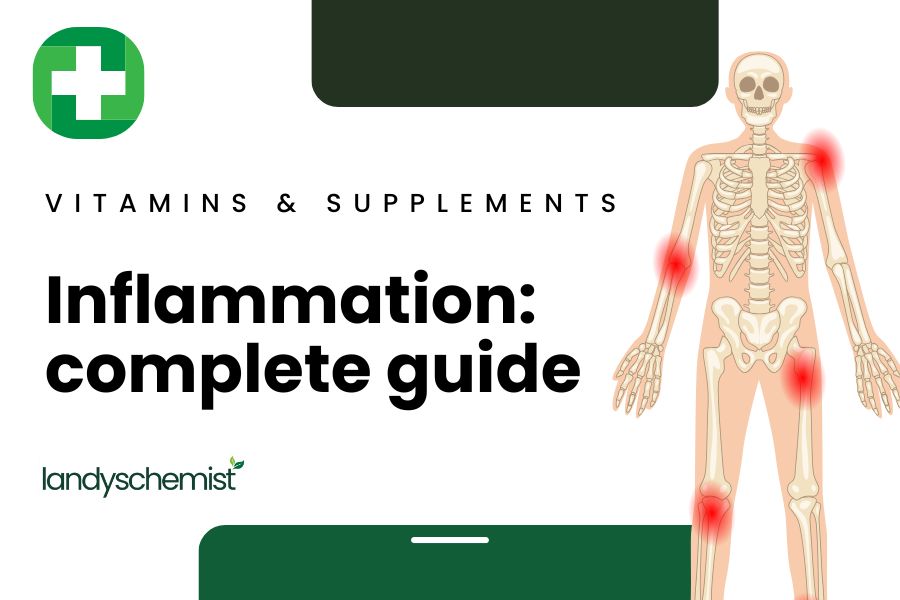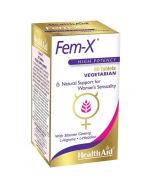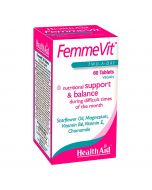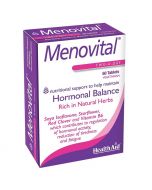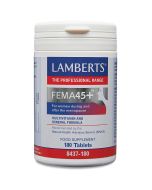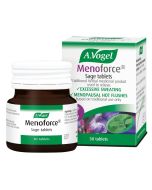
Essential Vitamins and Supplements for Menopause
Which Vitamins and Supplements are Good for Menopause?
The menopause is something that almost every woman will need to go through in life. It occurs when menstruation stops, and less oestrogen is produced in the body. Menopause typically occurs between the ages of 45-60. The first stage of menopause is called the perimenopause, which occurs as oestrogen levels slowly start to decrease.
Read More - Menopause 101: Everything You Need To Know
From here, as these levels continue to drop, the transition into menopause continues, which can lead to symptoms such as:
- Hot flushes
- Vaginal dryness
- Mood swings
- Decreased libido
- Insomnia
- Weight changes
Some women experience these symptoms more than others. As oestrogen levels drop, the risk of developing other conditions such as heart disease, osteoporosis and incontinence increases. There are plenty of ways to limit the severity of menopause symptoms and support general health if certain vitamins and minerals are taken alongside a healthy diet with moderate exercise. Taking supplements such as calcium and Vitamin D for example will help aid stronger bones, preventing the development of conditions like osteoporosis in older age.
Vitamins and supplements that support menopause
Magnesium:
Magnesium supplements and magnesium glycinate have been widely hailed as a key supplement to help ease symptoms of the menopause. This may be because many adults don't get enough of this important mineral anyway. Magnesium is essential for many processes in the body, including healthy nerve function, metabolism, blood pressure regulation, muscle health and blood sugar level health. It's important for circulatory and heart health, and taking magnesium supplements can help to combat osteoporosis, while reducing blood pressure and decreasing the risk of conditions like diabetes. Magnesium glycinate in particular can ease joint stiffness, calm anxiety, help promote healthy sleep, and stop hot and cold fluctuations in body temperature.
Because magnesium is responsible for many bio-chemical reactions in the body, it is easy to see how taking more in your diet as a supplement during menopause can help reduce hormone-related symptoms. The recommended daily intake for magnesium is 320mg. Taking more than this dose can lead to an upset digestive system and cramps. If you want to ensure a healthy intake of magnesium through your diet, you can find it in foods like avocados, edamame beans, low fat yogurt, bananas, brown rice, tuna fish, soy, spinach, pumpkin seeds and nuts like cashews and almonds.
Vitamin A:
Vitamin A is is a great supplement for menopausal women, as it is an antioxidant, which helps to improve overall health and enables the body to fight free radical damage. Vitamin A supports the immune system, which can help the body to fight viruses. It can also aid eye health. Our bodies get Vitamin A from two forms – a retinol form and a carotenoid form. Taking Vitamin A supplements during the menopause can help support vision, thyroid function (which can promote a healthy weight), and immunity performance. As hormone changes put extra stress on the body during menopause, taking antioxidants like Vitamin A can counter these hormone-related effects.
The recommended daily intake of Vitamin A is 700mcg. You should speak to your doctor before taking Vitamin A supplements, as taking too much in your diet can lead to blurry vision, headaches and an upset stomach. If you are on blood-thinning medications, this is especially important.
If you are thinking of increasing the amount of Vitamin A in your diet during the menopause, you should eat foods such as sweet potato, carrots, red peppers, mango, grapefruit, beef, lamb, cheese, oily fish, butter and olive oil.
Vitamin K:
Vitamin K is found in many leafy greens and green vegetables. It can help to promote blood clotting and circulatory health, and is important for keeping bones strong, as well as good oral health. Vitamin K has also been linked to reduced cell mutations and the lowering of infection levels. It does this by improving the way blood cells clot.
Research has indicated that the most important vitamin for bone health is Vitamin K2. Studies involving menopausal women have indicated that the risk of osteoporosis and bone fractures is higher in later life. A Vitamin K deficiency can lead to weaker bones and a higher risk of fractures, too. Taking Vitamin K supplements both during and after menopause can help to prevent bone weakness, and improve bone strength, minimising the risk of fractures and the development of conditions like osteoporosis or brittle bone disease. It has also been suggested that Vitamin K supplements can ease intense night sweats, insomnia and hot flushes during the menopause.
Our bones weaken naturally as we age, which is why it is important for women to ensure they are getting the right levels of Vitamin K in their diet to ensure bone density. The recommended daily dose for Vitamin K is 90mcg. Vitamin K is fat soluble, so if you consume a Vitamin K supplement with an oil like olive oil, or oily fish, this will help to increase absorption in the body.
If you want to ensure that you're getting more Vitamin K in your diet, you can do this by eating leafy greens like kale, chard, spinach and greens, okra, broccoli, cabbage, Brussels sprouts and asparagus. Vitamin K can also be found in soybeans, fatty fish, avocados and olive oil.
Vitamin C:
Vitamin C has long been hailed as a remedy for common cold symptoms. While research has indicated that taking Vitamin C won't prevent you from catching a cold, it may help to stop its severity. Vitamin C also helps to maintain bone and cartilage health and iron absorption. It's an antioxidant, too, which helps the body to protect itself from free radicals and conditions like heart disease, which is more common after menopause. Like Vitamin K, Vitamin C supplements can help to maintain bone density and health, which can reduce the risk of fractures in later life. It has also been suggested that Vitamin C supplements can lower the number of hot flushes experienced by perimenopausal women.
The recommended daily dose of Vitamin C is 75mg. You should never take more than 2,000mg per day. Too much Vitamin C can cause stomach cramps, nausea and diarrhoea. If you want to get more Vitamin C naturally in your diet, try foods such as red peppers, oranges and other citrus fruits, strawberries, papaya, kiwi, tomatoes, and greens like broccoli and kale.
Calcium:
As oestrogen hormones decline in menopause, we lose calcium, which is vital for the healthy function of the nervous system, strong muscles and bones. Calcium is an important mineral in your diet because it slows down bone loss. As we age, our bones become more porous and weaken, making them more fragile and prone to fractures and breakage. Our bones and teeth make up 99% of the calcium in our bodies. The final 1% helps our blood to clot when we are injured. It also helps our blood vessels to contract, and ensures a healthy nervous system. Our bones are continuously repairing themselves from daily wear and tear as we take part in normal activities. When this happens, our bones put calcium out into our bloodstream, and then reabsorb it back. If there isn't enough calcium present, less is reabsorbed. Once we reach our mid-thirties, we start to lose bone mass quicker than we can maintain it. During perimenopause and the menopause, a reduction in oestrogen means that less calcium absorption occurs, so the body takes less calcium from our food and puts it into our bones. This can lead to porous and brittle bones, and conditions like osteoporosis. Taking calcium supplements, even before menopause, is the best way to safeguard the body against brittle bones and osteoporosis in later life.
The recommended daily intake of calcium for women aged 18-50 is 1,000mg. For women over 50, it is 1,200mg. You should not take more than 2,000mg per day, as this can affect the absorption of other vitamins, and increase the risk of cardiovascular disease. If you are considering getting more calcium in your diet, opt for foods such as milk, cheese, tofu, yogurt, spinach, sardines and oily fish, and black-eyed peas.
Omega-3:
Many people don't get enough Omega 3s in their diet, but they are among the most important nutrients our bodies need for immunity, muscle health, fertility and digestive function. Omega 3 oils help the body to counter inflammation, fight infection, and enable our hormone systems to function properly. They can also keep our heart health in check. During the menopause, there is a raised risk of heart disease, which Omega 3s can help to prevent. Taking an Omega 3 supplement can also ease some of the symptoms of the menopause such as hot flushes, low mood and irritability, and sleep problems. If you are on blood-thinning medications, you should consult your doctor first before taking Omega 3 supplements.
The recommended daily intake of Omega 3s for women is 1,100mg. For men, it is 1,600mg. If you are vegetarian or vegan, it is especially important to take Omega 3 supplements, as they can give you the same amount of nutrients as eating fish or meat twice per week. If you'd like to get more Omega 3s in your diet during the menopause, eat oily fish like salmon, as well as walnuts and chia seeds, beans, avocado and tofu.
Can You Support Menopause With Botanicals?
Yes, multiple research has proved that taking specific botanicals can help to reduce and alleviate certain menopausal symptoms such as hot flushes, mood swings, and more. Discover which botanicals are the most effective in supporting menopause here.
By Neesha Desai, Pharmacist
Disclaimer
The products offered are not intended to diagnose, treat, cure, or prevent any illness or disease, or replace the advice of a medical professional. Results are not guaranteed and may vary from individual to individual.

